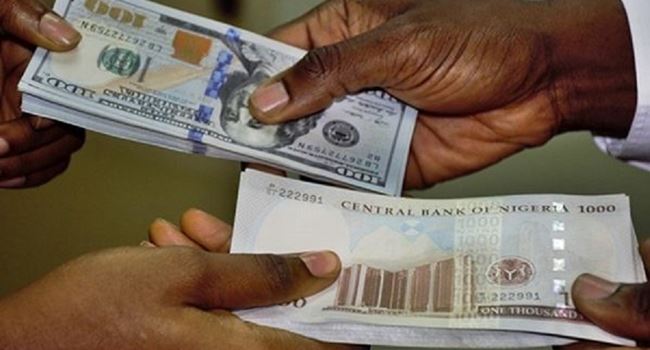Analysts at Goldman Sachs, Andrew Matheny and Bojosi Morule, have forecasted a significant appreciation of the Nigerian naira to N1,200 against the US dollar within the next 12 months.
This projection signals a substantial recovery from the naira’s perceived undervalued status. The forecast is contingent upon Nigeria’s shift away from volatile monetary policies and negative real interest rates, which have contributed to the naira’s significant depreciation.
The analysts’ report highlights that the naira has experienced a cumulative weakening of 60-70% over the past nine months. However, they anticipate reversing this trend as Nigeria transitions towards positive real interest rates and adopts more orthodox policy frameworks, initiating the country’s recovery from its currency crisis.
Despite acknowledging recent monetary policy transitions under President Bola Tinubu, which include a move towards inflation targeting and a more flexible exchange rate regime, the analysts emphasize the need for sustained efforts for lasting macroeconomic stabilization.
A potential risk to this forecast is the failure of Nigerian authorities to maintain the orthodox monetary path and implement adequate policy tightening measures to attract necessary capital inflows.
Policy Shifts and Economic Implications:
The analysts commend recent monetary policy shifts under President Tinubu, noting a move towards inflation targeting and exchange rate flexibility as positive steps. However, they critique the initial implementation phase for lacking depth until recently.
They stress the importance of positive real interest rates and external financing to address Nigeria’s currency and liquidity crisis, citing recent policy adjustments and central bank bill issuances as positive developments.
Nevertheless, analysts call for more decisive rate increases and a firm confirmation of policy shifts to attract meaningful foreign inflows.
Quoting from the report:
“We think the Naira looks cheap on a REER basis in a historical context. We thus see the reason for its undervaluation, and we see it appreciating to 1200 within the next 12 months.”
Insights:
ENTREPRENEURNG previously reported a significant depreciation of the Naira, which has lost about 68% of its value since implementing the foreign exchange unification policy.
The weakening Naira has led to various economic repercussions, including increased import costs, rising inflation rates, reduced purchasing power, and a deterrent effect on investment inflows.
Governor of the Central Bank of Nigeria (CBN), Mr. Yemi Cardoso, stated that the naira is undervalued, attributing it to market distortions and FX speculation. The CBN has been actively addressing FX issues through reforms, such as clearing forex obligations backlog and plans to establish a singular foreign currency gateway bank to centralize correspondent banking activities. Other measures include investigating FX backlogs, restricting forex allocation for overseas education and medical trips, augmenting minimum share capital for BDCs, and targeting FX market speculators.











